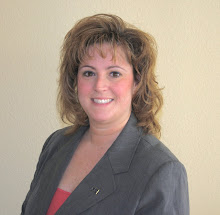I find it ironic that the new school board members are being criticized for running on platforms that included engaging the community, strengthening our neighborhood schools, and accountability. Isn’t that what is best for our kids?
Daniel Kim, co-founder of the MIT Center for Organizational Learning, developed a “Core Theory of Success” that identifies four key areas that need to be implemented effectively for any organization to be successful. Since looking at schools/districts as a business seems to be the accepted practice these days, let’s apply Kim’s Core Theory to the Denver Public Schools. The areas are:
• Quality of Relationships,
• Quality of Collective Thinking,
• Quality of Actions, and
• Quality of Results.
Daniel Kim’s theory purports that an organization can only be successful if all four areas are interconnected and implemented effectively. Due to the interwoven nature of these areas, the system engages in a loop of continual improvement. When organizations focus only on the problem, it worsens because no attention was paid to the root and additional factors that caused the issue.
Let me translate this into DPS language. Relationships matter with students, parents, employees, and community. Collective thinking allows for buy-in to reforms in the district, resulting in a school community that has contributed their ideas and energies to improving student learning. Implementing the plan will ensure that the entire community is engaged and accountable for their collective actions. Finally, the results are, in this case, student learning. DPS will show results because of the relationships, collaborative planning, collective action, and accountability of each stakeholder in the school community. Our students cannot succeed without each piece of this theory being enacted effectively.
Where has DPS gone wrong? A top down approach. Let’s play out the status quo:
DPS identifies a problem and comes up with a plan that is shared with the community. Courtesy meetings are held where community members are talked through the problem and solution, and then it’s implemented. This leaves out developing positive relationships with stakeholders, input/buy-in to the reform, and accountability for all stakeholders (all means all: students, parents, teachers, administrators, staff, community, and elected officials), and finally reflecting on the results and making adjustments to improve the implementation. Has the district studied the effectiveness of their previous reforms i.e. redesigns, closings?
The new members of our Board of Education have committed to real systems reform by working with the school community, our neighborhood schools, and holding all stakeholders accountable. After all, if it works for business, it should work for DPS. Sign me up- I’m “Up to the Challenge!”
Friday, November 13, 2009
Subscribe to:
Post Comments (Atom)

No comments:
Post a Comment